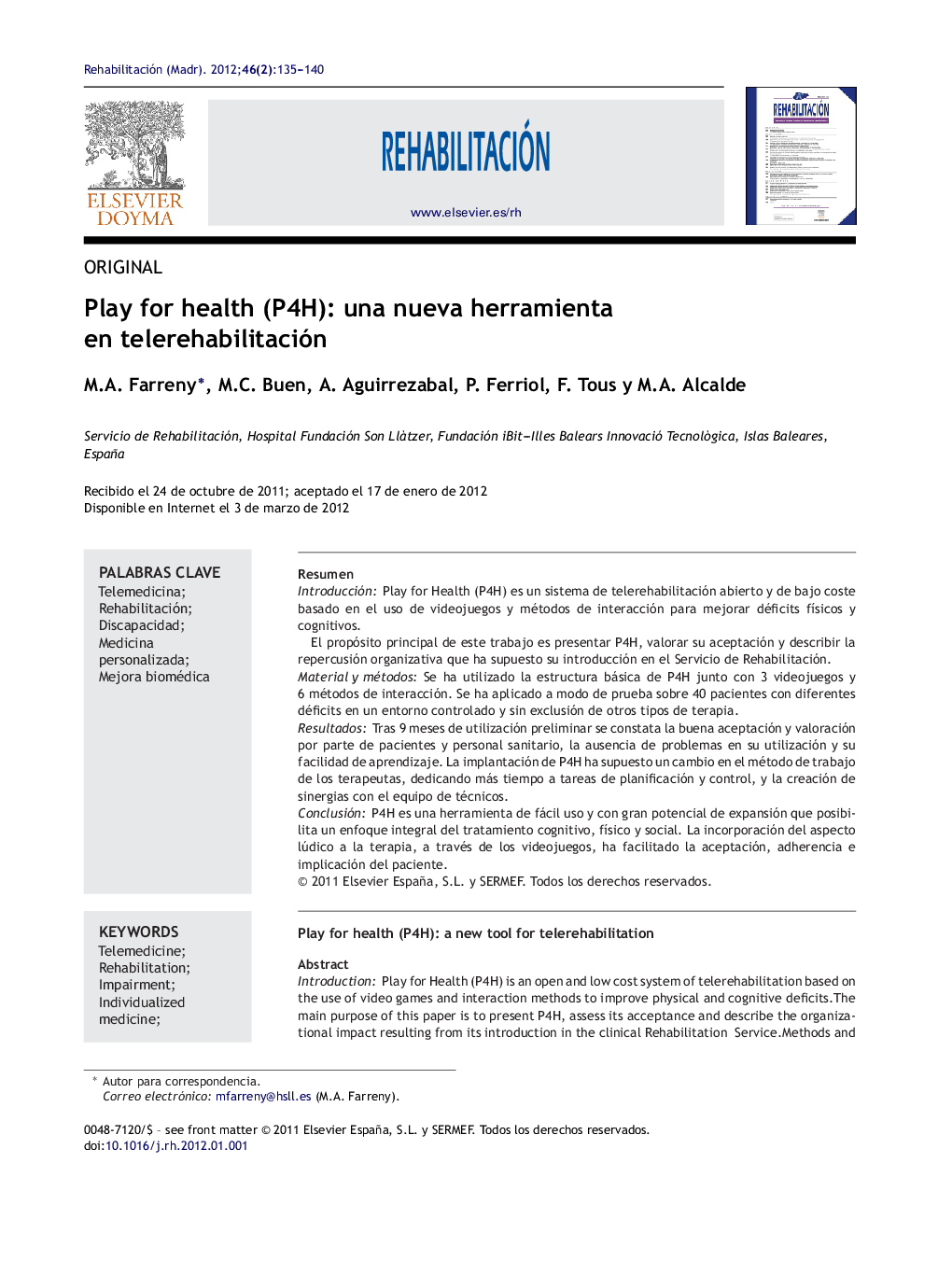| Article ID | Journal | Published Year | Pages | File Type |
|---|---|---|---|---|
| 4085035 | Rehabilitación | 2012 | 6 Pages |
ResumenIntroducciónPlay for Health (P4H) es un sistema de telerehabilitación abierto y de bajo coste basado en el uso de videojuegos y métodos de interacción para mejorar déficits físicos y cognitivos.El propósito principal de este trabajo es presentar P4H, valorar su aceptación y describir la repercusión organizativa que ha supuesto su introducción en el Servicio de Rehabilitación.Material y métodosSe ha utilizado la estructura básica de P4H junto con 3 videojuegos y 6 métodos de interacción. Se ha aplicado a modo de prueba sobre 40 pacientes con diferentes déficits en un entorno controlado y sin exclusión de otros tipos de terapia.ResultadosTras 9 meses de utilización preliminar se constata la buena aceptación y valoración por parte de pacientes y personal sanitario, la ausencia de problemas en su utilización y su facilidad de aprendizaje. La implantación de P4H ha supuesto un cambio en el método de trabajo de los terapeutas, dedicando más tiempo a tareas de planificación y control, y la creación de sinergias con el equipo de técnicos.ConclusiónP4H es una herramienta de fácil uso y con gran potencial de expansión que posibilita un enfoque integral del tratamiento cognitivo, físico y social. La incorporación del aspecto lúdico a la terapia, a través de los videojuegos, ha facilitado la aceptación, adherencia e implicación del paciente.
IntroductionPlay for Health (P4H) is an open and low cost system of telerehabilitation based on the use of video games and interaction methods to improve physical and cognitive deficits.The main purpose of this paper is to present P4H, assess its acceptance and describe the organizational impact resulting from its introduction in the clinical Rehabilitation Service.Methods and material: We have used the basic structure of P4H platform along with 3 video games and 6 methods of interaction. On a trial basis, it was applied on 40 patients with different deficits in a controlled environment and without exclusion of other types of therapy.ResultsAfter 9 months of preliminary use, its good acceptance and evaluation by the patients and health care personnel, absence of problems and the ease of learning in its use has been seen. The implementation of P4H has meant a change in the method of work of the therapists, who now may be spending more time on planning and control tasks, and the creation of synergies with the technical team.ConclusionP4H is an easy-to-use tool with great potential for expansion that enables a comprehensive approach to cognitive, physical and social treatment. The addition of the playful aspect to the therapy, through video games, has facilitated acceptance, adherence and involvement of the patient.
